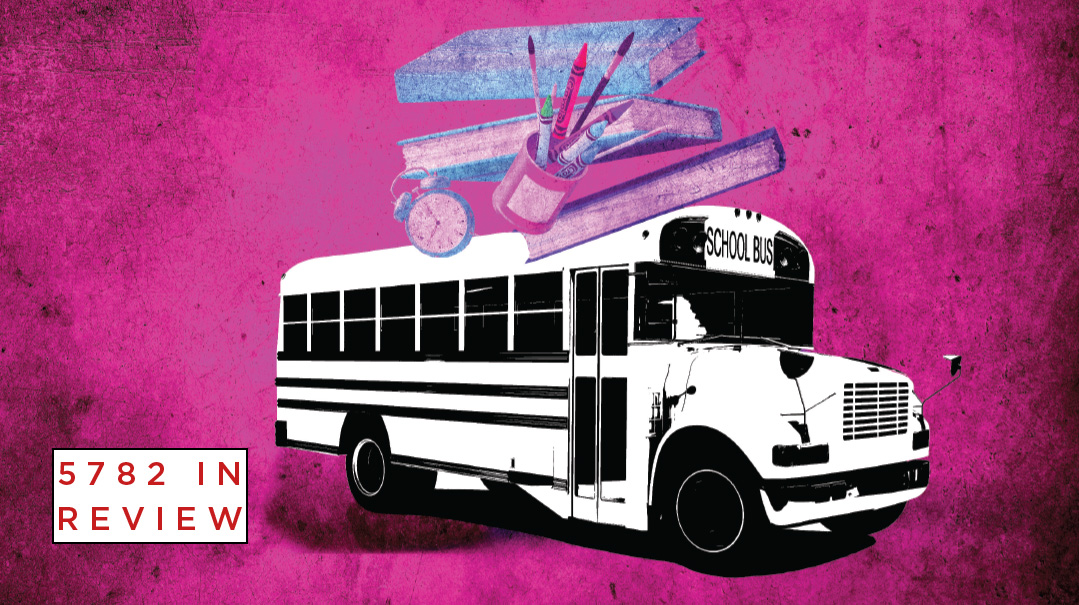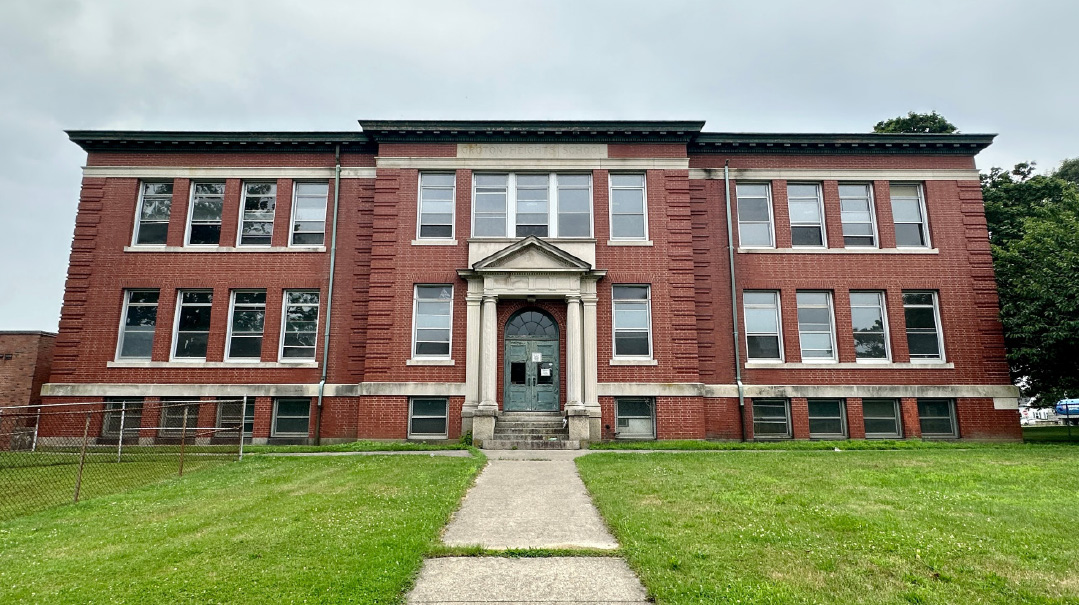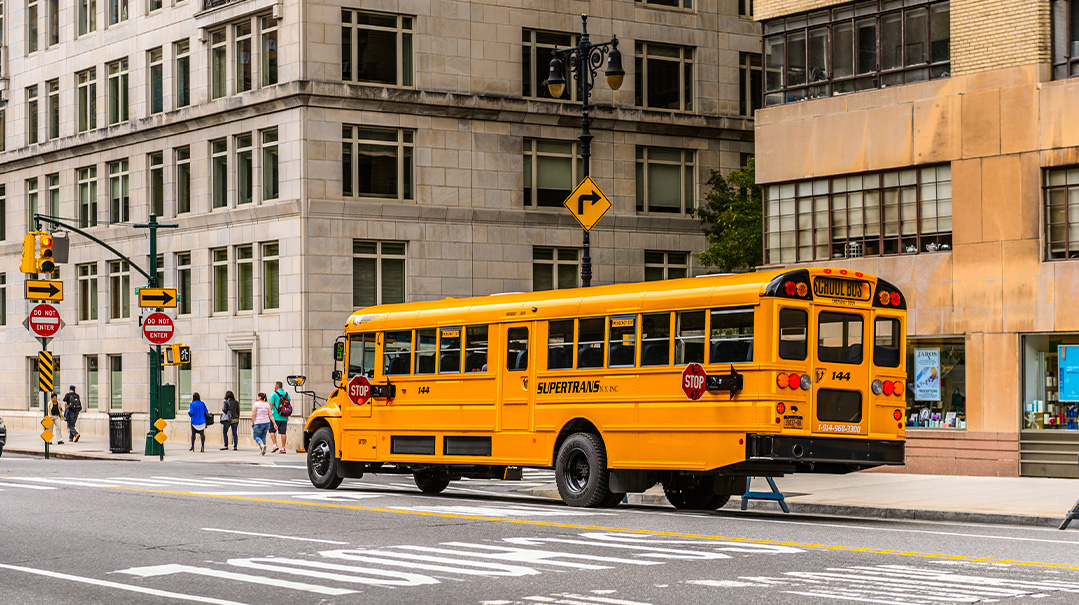Going Out with a Bang

The sudden year-end assault on religious rights also extended to Yeshiva University, the vaunted hub of Modern Orthodoxy

C
ompared to previous years, 5782 seemed to be winding to an uneventful close. There were no mayors or governors singling out the Jewish community for harsh polemics, there were no public officials resigning in disgrace, no riots or flames in Midtown. Even the pandemic seemed to have petered out, although government agencies were averse to surrendering the powers it conferred.
But that very lack of drama perhaps set the stage for a late-breaking power grab by New York’s Board of Regents. Days after acknowledging that the “vast majority” of the 350,000 comments the board received for its sweeping private school regulations were opposed to the measures, the Regents voted unanimously last Tuesday to assert control. A lawsuit is certain to be coming, meaning it will likely be years before the regulations can go into effect.
The Board claimed that public education officials, not parents, are the parties responsible for deciding how children should be taught: “The argument that parents have an unfettered right to dictate the degree of education their children receive has been repeatedly rejected by State and federal courts.” This issue, which has already riled up conservatives around the country, is likely to be at the core of any legal action.
The sudden year-end assault on religious rights also extended to Yeshiva University, the vaunted hub of Modern Orthodoxy. A state judge ordered it to recognize a student organization that runs counter to its religious values, with the Supreme Court rejecting a request to overturn it ahead of a trial. That forced YU to begin the appeals process in state court.
There was some notable activity in the political arena this past year. Eric Adams, a moderate Democrat with a flair for wordplay and a proclivity for swagger, became mayor of New York, ending the eight-year de Blasio era. During his mayoralty, de Blasio’s budgets rose from $70 billion a year to $100 billion, without a commensurate rise in quality of life. New York remains the only major US city that hasn’t yet recovered the jobs it lost during Covid lockdowns, its leader reluctant to cede power. Adams hopes to achieve the legacy of repairing his predecessor’s botch-ups, including the empowerment of the progressive left.
Speaking of which, the past year has seen AOC’s star diminished, with virtually none of her Democratic primary endorsees crossing the finish line. In the party primary for the 10th Congressional District — which covers parts of Boro Park but is considered one of the most progressive House seats in the nation — the race was won by a relative moderate, Dan Goldman.
In New Jersey, Governor Phil Murphy, a moderate Democrat with close ties to the Jewish community, won reelection. Lakewood, however, voted for the Republican, Jack Ciattarelli, who waged a surprisingly tight race, coming within three percentage points of victory.
But lest the Tristate Jewish community feel it has been singled out in 5782, many of its problems have been experienced across the country — red-hot price increases, rising crime, mounting anti-Semitism, and progressive district attorneys who refuse to prosecute all but the most violent criminals. In the campaign for New York’s November gubernatorial election, pitting Democratic incumbent Kathy Hochul against Republican Lee Zeldin, the latter has promised to fire Manhattan DA Alvin Bragg, who has declined to prosecute scores of cop-slappers, repeat burglars, and petty thieves.
An incident emblematic of the new lawlessness came in July, when Bragg confounded common sense by charging a bodega owner with murder for defending himself against a knife-wielding assailant. Charges were finally dropped after a national outcry.
Like I said, a relatively uneventful year.
Prediction
In one candid interview by then-mayor Bill de Blasio in 2017, he revealed his yearning to abolish all home ownership and have government decide “which building goes where, how high it will be, who gets to live in it, what the rent will be.”
That thankfully did not happen, but a week after that comment, I interviewed the mayor. I was warned by his handlers not to mention that quote, I assumed because he made the mistake of saying the quiet part out loud. The truth mustn’t get out to the masses.
I boldly predict that in the coming year, the masses will tire of progressives and the increase in misery they bring and will vote the bums out of New York.
Most Unexpected
A group called Save Maimonides formed with the goal of toppling the Boro Park hospital’s leadership, complaining about its customer service, financial management, and patient care. The hospital pushed back, under the slogan “There is another side.”
Maimonides is one of the largest landowners in Boro Park and has long ridden roughshod over complaints from neighbors and public officials. It will be interesting to see if it can ride this one out.
Bright Spot
One heartwarming event this year turned out to be the Adirei HaTorah event in June, held at Philadelphia’s Wells Fargo Stadium. There was plenty to inspire, from the “We All Admire Our Yungeleit” banner that wrapped around the stadium, to the singing when the Lakewood roshei yeshivah walked in, and even the clip that circulated of a non-Jewish Wells Fargo staffer swaying to the music’s beat. Honoring Torah is for everyone.
135,158
Lakewood’s population in the 2020 US Census, far larger than the federal estimate of 106,000. This means the ir haTorah grew by nearly 40,000 over the last decade. Other Torah centers saw similar jumps — Monsey went from 18,000 in 2010 to nearly 27,000 now, a growth of 50 percent, while the country’s three exclusively frum villages also grew by leaps and bounds, with Kiryas Joel adding 9,000 residents, New Square 2,700, and Kaser 700.
(Originally featured in Mishpacha, Issue 929)
Oops! We could not locate your form.







